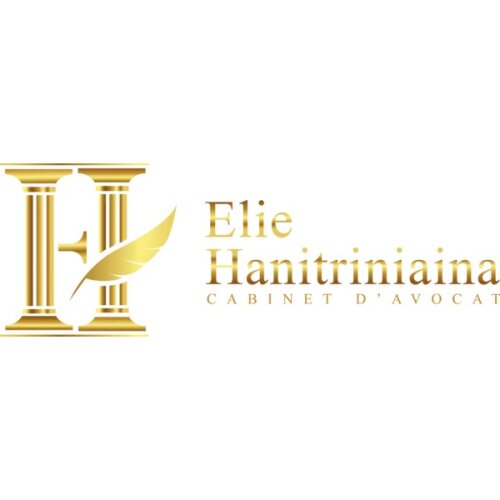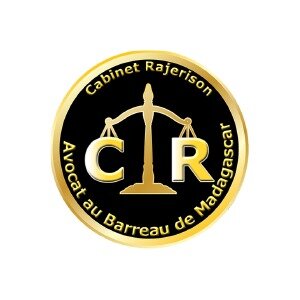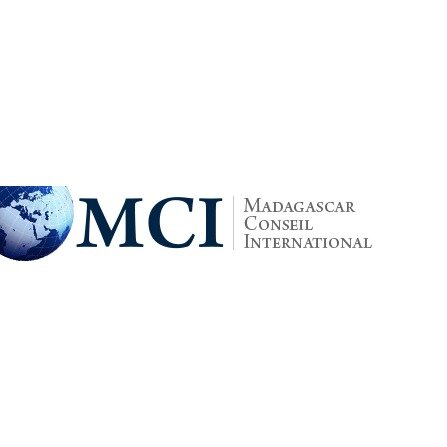Best Conveyancing Lawyers in Madagascar
Share your needs with us, get contacted by law firms.
Free. Takes 2 min.
Free Guide to Hiring a Real Estate Lawyer
Or refine your search by selecting a city:
List of the best lawyers in Madagascar
About Conveyancing Law in Madagascar
Conveyancing in Madagascar refers to the legal process involved in transferring ownership of real estate, such as land, houses, or commercial property, from one person or entity to another. This legal field covers a wide range of activities including drafting contracts of sale, handling registrations, verifying titles, and ensuring compliance with local property laws. The conveyancing process is essential for both buyers and sellers to ensure a secure and legally acknowledged transfer of property ownership. As in many jurisdictions, Madagascar’s legal system has specific requirements, procedures, and authorities that must be observed to complete conveyancing successfully.
Why You May Need a Lawyer
Conveyancing transactions in Madagascar can be complex and require careful attention to legal details. There are several reasons why a person might need a lawyer to assist with conveyancing:
- Buying or Selling Property: Reviewing and preparing contracts, ensuring legal requirements are met, and protecting clients from potential fraud.
- Title Verification: Conducting due diligence to confirm the seller’s legal right to transfer the property and that the title is free of disputes or encumbrances.
- Resolving Disputes: Navigating conflicts that may arise regarding boundaries, inheritance claims, or fraudulent titles.
- Registration with Authorities: Managing the mandatory government registration process, which is crucial for formalizing property transfers in Madagascar.
- Inheritance or Gift Transfers: Applying the correct legal processes to transfer property via inheritance or as a gift, which may involve additional legal steps and documentation.
- Foreign Ownership: Advising foreign nationals or companies on the restrictions and legal pathways for property ownership in Madagascar.
Local Laws Overview
Conveyancing in Madagascar is governed by several key legal frameworks and customary practices. Some important aspects of local conveyancing laws include:
- Legal Ownership: Only Malagasy citizens and certain categories of companies can own land outright. Foreigners may hold leaseholds, subject to government permission and specific conditions.
- Title Documentation: Properties must have clear registration and title documentation through the Bureau des Domaines (Land Registration Office) and notaries play a crucial role in verifying these documents.
- Notary Public Involvement: The involvement of a notary is compulsory. All property sales and transfers must be formalized by a notarial deed to be legally valid.
- Registration Fees and Taxes: Various taxes and fees apply during the transfer, such as registration duties and notary fees, which must be paid for the transfer to be recognized by law.
- Inheritance Laws: Properties transferred by succession are subject to specific procedures, requiring involvement of heirs and strict compliance with succession laws.
- Local Authority Approval: For certain types of properties, particularly agricultural or rural land, local authority or ministry approval may be necessary.
Frequently Asked Questions
What is the first step in conveyancing in Madagascar?
The process begins with a preliminary agreement or promise of sale, followed by title searches and due diligence. A local notary typically facilitates these steps.
Can foreigners buy land in Madagascar?
Foreign individuals generally cannot own land outright but can obtain long-term leases, subject to government approval and specific conditions. Foreign companies may sometimes purchase land under certain investment frameworks.
Is using a notary mandatory for property transfers?
Yes, all property transfers in Madagascar must be executed before a notary, who prepares and registers the official deed of transfer.
How can I verify a property’s legal title?
The notary conducts a title search at the Land Registration Office to ensure the property’s legitimacy and that it is free of disputes or encumbrances.
What taxes or fees should I expect?
Buyers and sellers will encounter several costs, including notary fees, registration taxes, and possibly stamp duties, often calculated as a percentage of the property value.
How long does the conveyancing process take?
Timelines can vary, but the process typically takes several weeks to a few months, depending on the complexity of the transaction and whether all documentation is in order.
What are the main risks in property transactions?
Potential risks include unclear ownership, existing liens, boundary disputes, forged documents, and non-compliance with zoning regulations.
Can inherited property be sold freely in Madagascar?
Inherited properties require the proper succession procedures to be completed before any sale or transfer can take place. All heirs must be involved in the process.
Is it necessary to involve a lawyer if a notary handles conveyancing?
Although not compulsory, engaging a lawyer can provide additional protection and ensure your interests are represented, especially in complicated cases or disputes.
What should I do if there is a dispute over property boundaries?
Disputes should be reported to the local authorities or handled through legal channels, including mediation or the courts. A lawyer can help navigate the resolution process.
Additional Resources
If you are seeking more information or assistance about conveyancing in Madagascar, consider reaching out to the following resources:
- Bureau des Domaines: Madagascar’s Land Registration Office provides information about title searches and property registration.
- Notary Publics: Licensed notaries are the main facilitators for property transfers and can advise on legal requirements.
- Ministry of Land Management and Land Services: The main government body overseeing land laws and property transactions.
- Legal Aid Clinics and Lawyer Associations: Can offer initial guidance and referrals to qualified attorneys.
Next Steps
If you need legal assistance for conveyancing in Madagascar, here are some recommended steps to follow:
- Gather all available documents related to the property, such as title deeds, previous sales contracts, and identification papers.
- Contact a licensed notary or lawyer with experience in property law in Madagascar. Prepare to discuss your goals and share relevant documents.
- Request a preliminary assessment to identify potential issues or additional requirements for your transaction.
- Understand the full scope of fees, taxes, and timeframes involved before signing any agreements or making payments.
- Always ensure that agreements are formalized and registered in compliance with local laws to secure your rights.
Professional advice is invaluable to protect your investment and ensure a smooth conveyancing process in Madagascar.
Lawzana helps you find the best lawyers and law firms in Madagascar through a curated and pre-screened list of qualified legal professionals. Our platform offers rankings and detailed profiles of attorneys and law firms, allowing you to compare based on practice areas, including Conveyancing, experience, and client feedback.
Each profile includes a description of the firm's areas of practice, client reviews, team members and partners, year of establishment, spoken languages, office locations, contact information, social media presence, and any published articles or resources. Most firms on our platform speak English and are experienced in both local and international legal matters.
Get a quote from top-rated law firms in Madagascar — quickly, securely, and without unnecessary hassle.
Disclaimer:
The information provided on this page is for general informational purposes only and does not constitute legal advice. While we strive to ensure the accuracy and relevance of the content, legal information may change over time, and interpretations of the law can vary. You should always consult with a qualified legal professional for advice specific to your situation.
We disclaim all liability for actions taken or not taken based on the content of this page. If you believe any information is incorrect or outdated, please contact us, and we will review and update it where appropriate.
Browse conveyancing law firms by city in Madagascar
Refine your search by selecting a city.














